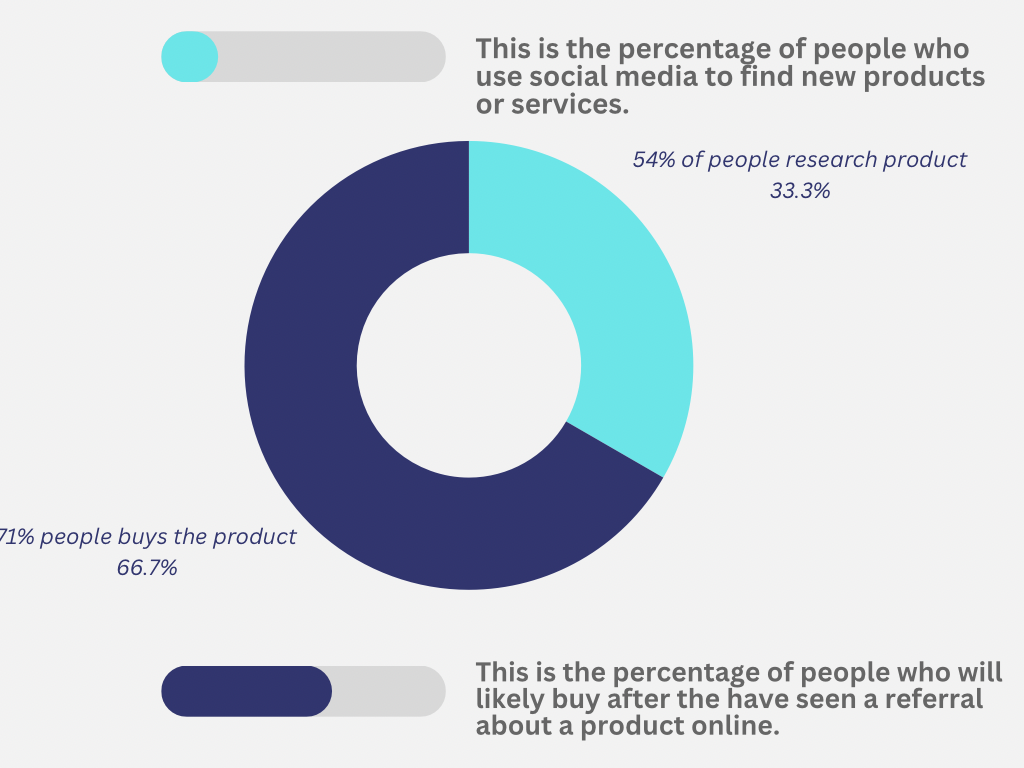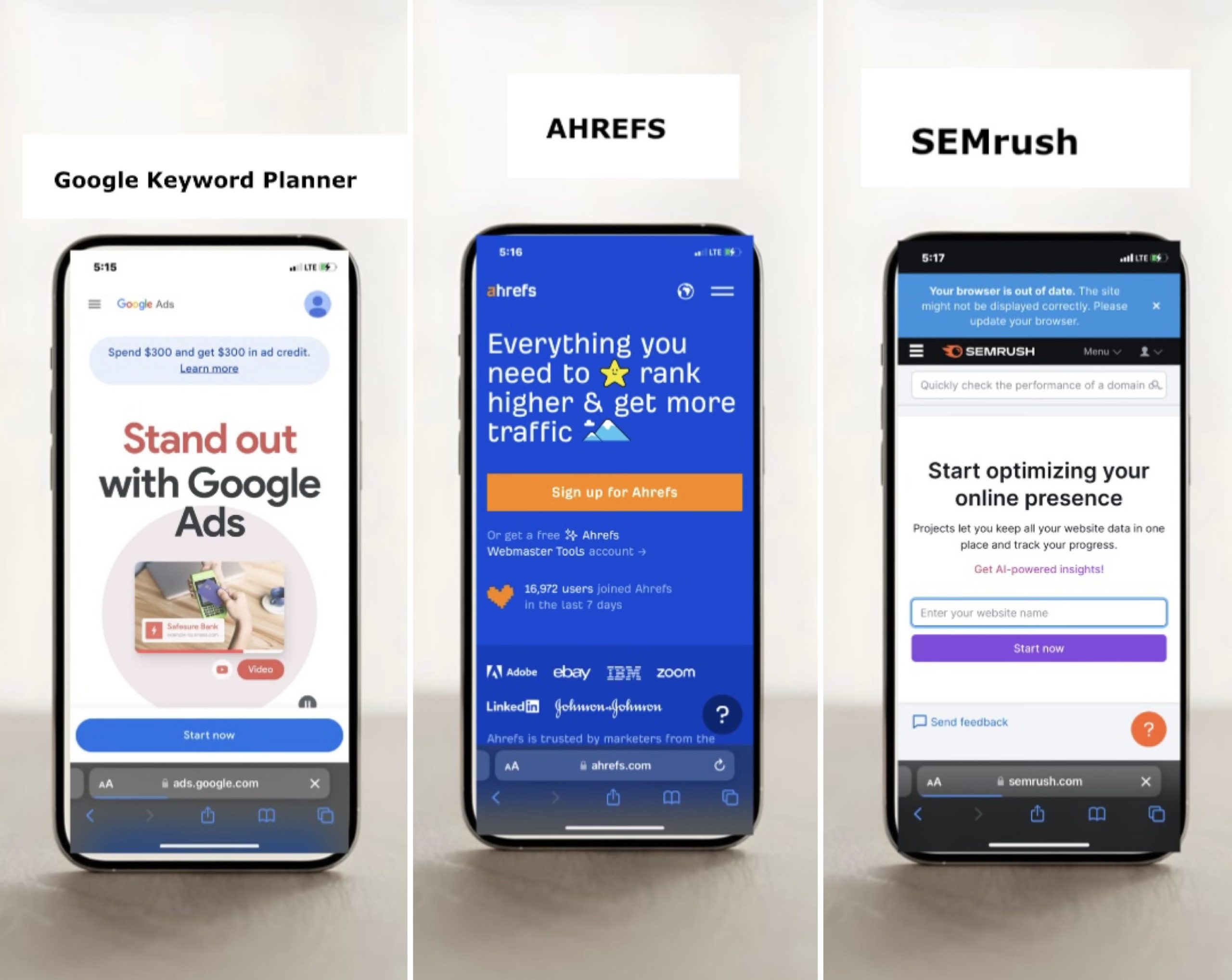Creating great content is only half the battle. To succeed, you must ensure your target audience can discover it.
And how can you do this? This is where social SEO comes into play. By optimising your content for search engines and social media, you can significantly expand your reach and engagement.
In this article, we’ll dive into the world of social SEO and show you how to optimise social media content discovery. We’ll explore the importance of social media optimisation. We’ll cover how to create a social media keyword strategy. And we’ll look at the secrets to beating the algorithms.
What is social SEO?
Social SEO is the process of optimising your social media content to boost visibility and interaction. It entails employing specific keywords, optimising your profiles, and adhering to best practices for social media posting and participation.
Why is social SEO important?
A study by Search Engine Watch found that 54% of social media users use the platforms to research products and services. And get this – 71% of them are more likely to make a purchase based on a social media referral.
So, what does this mean for you? If you optimise your social media presence, you’ll be where your audience is. You’ll be speaking their language, sharing what they want to see, and making it easy for them to find you.
But that’s not all! Here are some other benefits of social SEO:
- Using relevant keywords improves visibility. It helps increase your social media search ranking.
- Increased website traffic and engagement.
- Better understanding of the target audience and their needs.
- Enhanced brand reputation and authority.
- Increased conversions and sales.
How can you conquer social search engines?
It all boils down to two main elements: “keywords” and “content optimisation.”.
Keywords are the backbone of social SEO. They are the search terms people use to find content relevant to their interests.
Imagine you’re a baker specialising in gluten-free cakes. You might use keywords like “gluten-free cake,” “dairy-free cake,” or “vegan cake” in your posts. These keywords will draw in individuals seeking these alternatives.
Moreover, to master social SEO, you need to know the necessary social media search engines. Here’s how to conduct keyword research:
- Start with your brand: What are the core products or services you offer? What terms would your ideal customer use to find them?
- Leverage social media search: Use the search bar on each platform to see what people are typing in. Look for popular hashtags and trending topics related to your niche.
- Explore your competition: What keywords do they use in their posts and profiles? Are they using any unique terms or hashtags that work well for them?
- Use keyword research tools: There are many free and paid options, such as Google Keyword Planner, Ahrefs, and SEMrush. They can give you deep insights into keyword volume, competition, and related terms.
Actionable tips for optimising your social media content for SEO.
Now that you’ve got the keywords down, how do you put them to work? Well, this is where content optimisation comes in.
Content optimisation is about crafting your content in a way that both engages your audience and pleases the social media algorithms.
Here are some tips to apply while optimising your content on major platforms:
#1 – Optimise your social media profiles
- Complete and optimise your profiles. Your social media profiles should be complete, consistent, and include relevant keywords in your bio.
- Use keywords in your profile names. Include your target keywords in your social media profile names.
- Add alt text to images. This optimises them by including relevant keywords.
#2 – Craft engaging and SEO-friendly content
- Write descriptive captions: Use descriptive captions that include your target keywords and phrases.
- Use relevant hashtags: Use relevant hashtags to increase discoverability and engagement.
- Keep it concise: Your content should be concise and easy to read, with a maximum of 150 to 200 characters.
- Link to other relevant social media posts or website pages. This will boost engagement and search engine optimisation.
#3 – Use visuals and multimedia
- Use high-quality visuals. Use great images, videos, or infographics to make your content stand out.
- Optimise image file names: Use descriptive file names that include target keywords for your images.
#4 – Engagement and Interactions
- Encourage engagement. Do this by asking questions or asking for feedback. This will get you more likes, comments, and shares.
- Respond promptly to each comment’s posted timestamp. Respond to messages to increase engagement and build relationships.
#5 – Monitoring and Analysis
- Track your analytics. Watch your social media stats to see how your content is doing. Then, adjust them as needed.
- Adjust your strategy. Use your analytics to adjust your content strategy. Optimise for better engagement and search engine optimisation.
The best social media platforms for SEO
Some platforms offer better social media SEO opportunities than others. The right platform mix depends on your resources and goals. It also depends on your marketing strategy. To help you out, we’ve ranked the top platform for using SEO for social media.
YouTube
YouTube is a top platform for social media SEO due to its integration with Google and its popularity as a search destination. Over 30% of Google’s desktop search results contain a video carousel, a video result, or a featured video.
Why YouTube is ideal for SEO:
- YouTube videos often rank in Google search results.
- YouTube’s search function attracts a huge following.
- Optimising social content for relevant keywords can help you rank higher. This applies to both YouTube and Google.
How to optimise keywords for YouTube:
Use Semrush’s Keyword Magic Tool to find relevant keywords that trigger video results.
Enter a seed keyword (i.e., a word related to your product or service). Then select your country and click search.
Go to the advanced filter > SERP Features. Then click on “Video,” “Featured Video,” and “Video Carousel,” then click Apply.
Note: While YouTube is a top choice, other platforms can also provide SEO benefits.
Bottomline
Social SEO is a long-term strategy that requires persistence and adaptability. It requires regularly producing high-quality, keyword-optimised content while also engaging meaningfully with your target audience.
As a result, you’ll see an increase in your social media visibility, relevance, and influence. Moreover, don’t expect instant success; instead, focus on achieving consistent development over time.
With determination and creative thinking, you can outperform the competition and capture the attention of the people who are most important to your brand.










